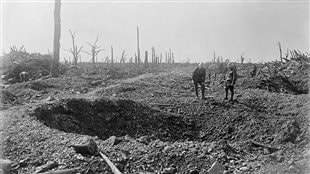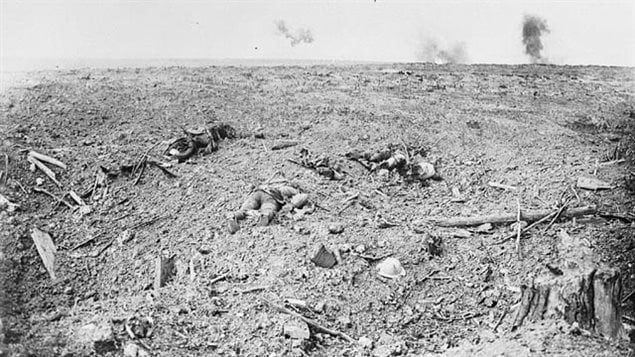The end of July marks the 100th anniversary of the start of the First World War. Canada as a strong member of the British Commonwealth was automatically drawn in with Britains declaration of war against Germany.
Though it ended four years later, it’s effects have rippled down through the decades to political situations and conflicts of today.
Johnathan Vance is a distinguished professor and J.B. Smallman Chair in the Department of History at the University of Western Ontario.
ListenOne of the effects that Canadians have to deal with every year, is that of income tax.

Many do not know however, that it was introduced during the First World War, as a “temporary” measure to finance the war effort.
The war changed Canada in many ways, bringing a sense of nationhood to the young land, and also resulting the beginning of change for the status of women in society, many of whom began to enter the workforce for the first time. In some cases, communities ceased to exist after the war as so many men never returned
It was a war that toppled empires and monarchies, led to the rise of communism.
It may have been called, “the war to end all wars”, but that certainly didn’t hold true, setting the stage itself for WWII and later many smaller conflicts around the world.

The roots of the Vietnam war for example can also be traced back to WWI, and many of today’s conflicts, from the Balkans, to the ongoing clashes in the middle east and Ukraine also have their origins in the artificial boundaries and policies created after the war.
Although it began almost 100 years ago to the day, and lasted only four years, Professor Vance says WWI is very much still with us today.







For reasons beyond our control, and for an undetermined period of time, our comment section is now closed. However, our social networks remain open to your contributions.